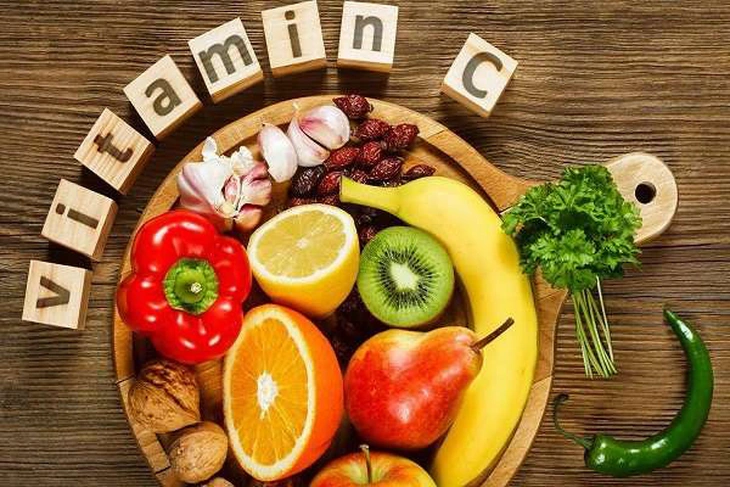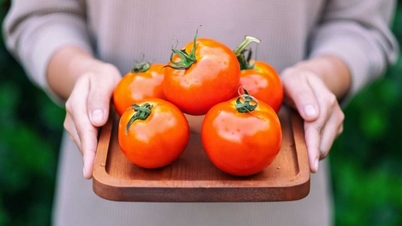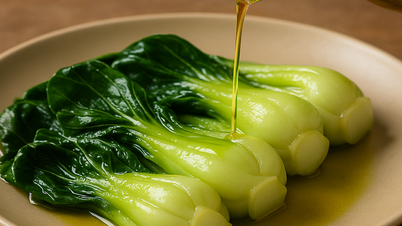
Fruits and vegetables are not only good for the skin and metabolism, but also good for overall health - Illustration: QUANG DINH
According to a study published in the journal Sleep Health , participants improved their sleep when they increased their daily fruit intake. The improvement was actually quite immediate, suggesting that consuming more fruits and vegetables may contribute to reduced insomnia the following day.
Simple dietary changes can help you fall asleep more easily at night and help cultivate the ability to focus on what you should do to improve sleep, rather than just focusing on what you should avoid, according to study author Marie-Pierre St-Onge, PhD, professor of nutritional medicine at Irving Medical Center, Columbia University.
"We often give recommendations on things to avoid for healthy sleep, such as not drinking caffeine too late or not drinking too much alcohol," Professor St-Onge told Health magazine. "It's good to know that there are foods that actually help improve sleep."
Sleep quality is also related to diet.
To investigate the impact of daily diet on sleep, Professor St-Onge and other researchers recruited 34 participants aged 20-49, mostly men. Initially, all participants were in good health and had no history of sleep problems.
The study consisted of two six-week phases, separated by a month. The research team asked participants to record all the food and drinks they consumed over several days, and to track their sleep using a wearable actinography device (similar to a smartwatch).
At the end of the study, scientists looked for a link between diet and sleep quality in participants. Specifically, they examined disrupted sleep, which is the number of times participants woke up during the night, according to St-Onge.
The results indicate that:
Consuming more fruits and vegetables during the day can help reduce sleep disruptions. Higher carbohydrate and fiber intake can contribute to better sleep quality. Consuming large amounts of red meat and processed meats can lead to poorer sleep quality.
Specifically, increasing daily fruit and vegetable intake from 0 to 5 servings (each serving being 250ml, with raw vegetables excluding leafy greens accounting for 125ml, leafy greens 120ml, and cooked vegetables 125ml) can improve sleep quality by 16%.
Interestingly, added sugar was not linked to sleep quality, suggesting that "carbohydrates and fiber from fruits and vegetables are most likely contributing factors to improved sleep quality," the study authors wrote.
Essentially, this means that a person's daily eating habits can directly affect the quality of their nighttime sleep, explains nutritionist Brannon Blount, who currently works in Virginia, USA.
"While we often view sleep and diet as two separate health goals, this research has shown a link between them," expert Brannon told Health magazine.

A healthy diet helps reduce the risk of obesity and promotes better sleep - Illustration.
A healthy lifestyle leads to better health, but diet is most important in relation to sleep.
Studies have also shown that people who eat healthily tend to have healthier lifestyles; they may exercise more regularly, which in turn contributes to improved sleep.
"We adjusted for all these factors, and even after doing so, we still found that it was a healthy diet that was the main factor associated with better sleep," Professor St-Onge shared.
Currently, the most widely supported hypothesis is that carbohydrates may increase the brain's ability to absorb tryptophan from food. "This is an amino acid that is converted into serotonin and then into melatonin, the hormone that regulates sleep," the expert explained.
According to experts, fruits and vegetables are also rich in fiber, vitamins, and antioxidants, which help improve brain, hormonal, and gut health, thereby supporting better sleep.
Fruits and vegetables should be added to your daily diet.
Ensuring you eat enough fruits and vegetables every day can feel overwhelming. But small changes can make this task much simpler.
In fact, adding one or two servings of vegetables to a meal is quite easy: You can serve it in a salad, or add spinach to soup or noodles.
Another way to make things easier is that fruits and vegetables are still very healthy even if they aren't fresh.
"Frozen, canned, pre-washed, or pre-cut products all count and can help you reach your 5-cup-a-day goal without too much time or effort," the expert shared.
Ultimately, incorporating fruits and vegetables into your diet will vary from person to person, so it's important to find the method that works best for you.
Source: https://tuoitre.vn/ban-co-biet-nhung-mon-an-co-the-giup-ban-cai-thien-chat-luong-giac-ngu-20250717085219475.htm













































































































Comment (0)